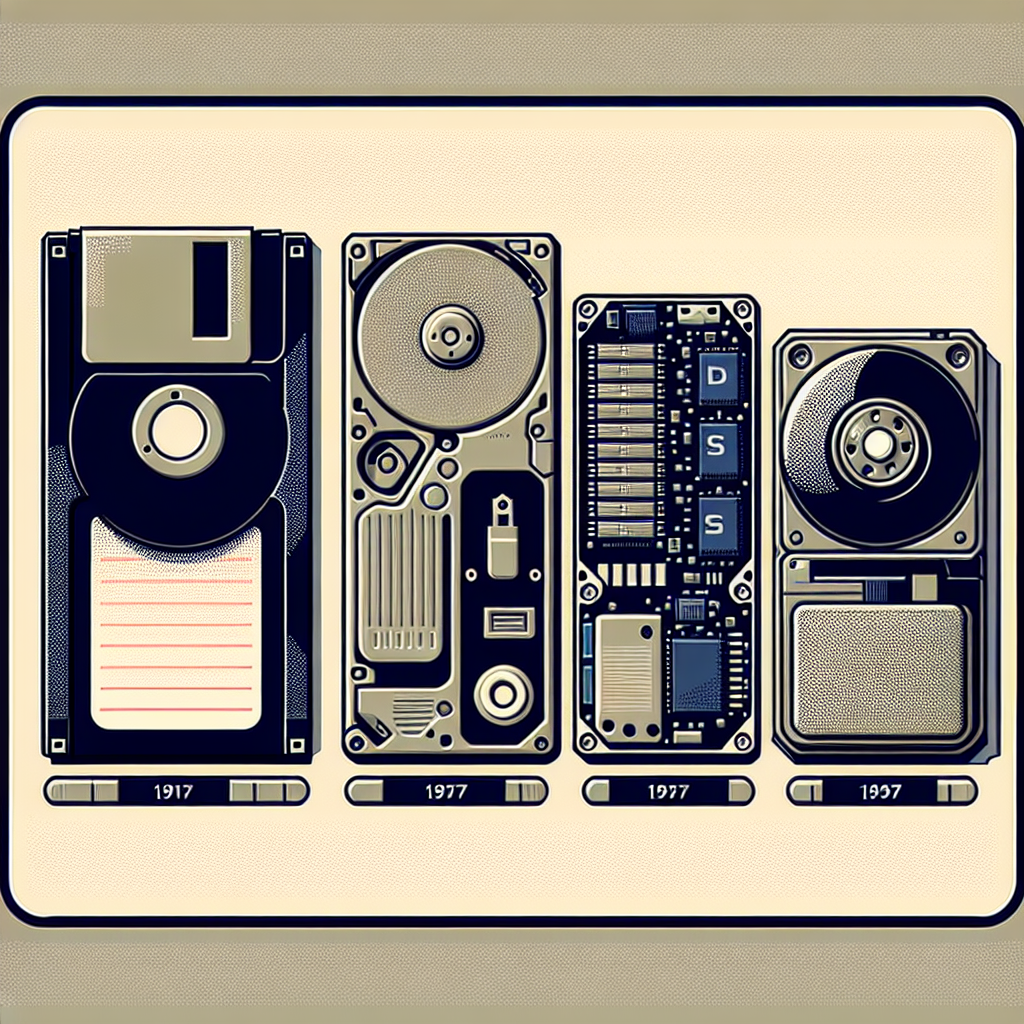Your cart is currently empty!
The Evolution of Hard Drives: From Floppy Disks to Solid State Drives

Over the past few decades, the technology behind hard drives has evolved significantly. From the early days of floppy disks to the more recent solid state drives (SSDs), the evolution of hard drives has been marked by advancements in storage capacity, speed, and reliability.
Floppy disks were one of the first forms of portable storage for computers. Introduced in the 1970s, floppy disks were small, flexible disks that could store a few megabytes of data. While floppy disks were revolutionary at the time, they were slow, had limited storage capacity, and were prone to data corruption. As technology progressed, floppy disks were eventually phased out in favor of more advanced storage solutions.
The next major advancement in hard drive technology came with the introduction of hard disk drives (HDDs). HDDs use magnetic storage to store data on spinning disks, allowing for faster read and write speeds and larger storage capacities than floppy disks. HDDs quickly became the standard form of storage for computers and remained so for many years.
In recent years, solid state drives (SSDs) have emerged as a popular alternative to traditional HDDs. SSDs store data on flash memory chips rather than spinning disks, which allows for faster read and write speeds, improved reliability, and reduced power consumption. While SSDs are typically more expensive than HDDs, many users are willing to pay the premium for the increased performance and durability that SSDs offer.
The evolution of hard drives has been driven by the need for faster, more reliable storage solutions as technology continues to advance. As we look to the future, it is likely that we will see further advancements in hard drive technology, with new technologies such as 3D NAND and PCIe NVMe pushing the boundaries of what is possible in terms of storage capacity and speed.
Overall, the evolution of hard drives from floppy disks to solid state drives has been a remarkable journey, with each new technology building on the innovations of the past to create faster, more reliable storage solutions for the modern computer user. Whether you are a casual user or a hardcore gamer, the evolution of hard drives has had a profound impact on the way we store and access data, and it is exciting to think about what the future may hold for this essential technology.

Leave a Reply